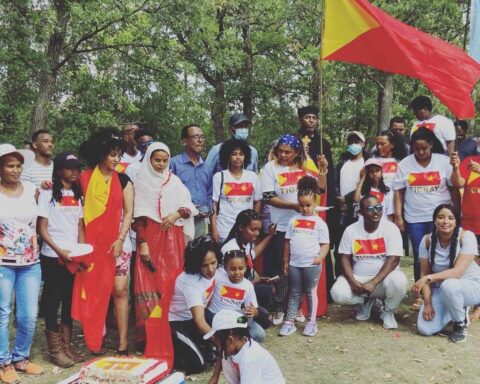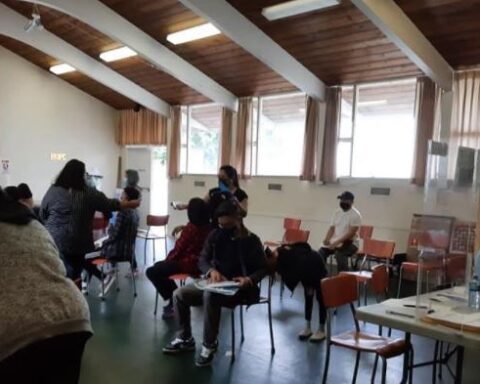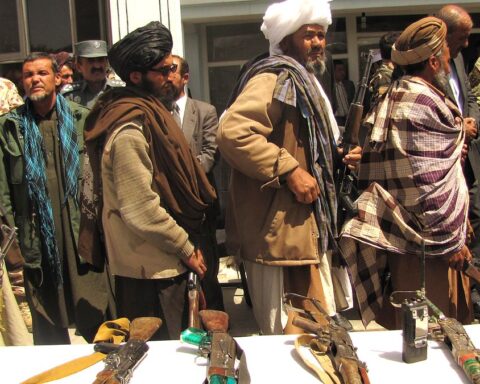With Philippine President Benigno Aquino set to make a state visit to Canada next month, the Department of Environment and Natural Resources (DENR) in Manila has dropped its demand on the Canadian government to take back the trash that was illegally shipped there two years ago.
Philippine Environment Secretary Ramon Paje said the inter-agency government committee, including the DENR, agreed to dispose of the trash in landfills here “for the sake of our diplomatic relations” with Canada.
“It has been resolved. The DFA (Department of Foreign Affairs) has strongly recommended it be settled diplomatically,” Paje said in an interview, published in Manila.
The Bureau of Customs (BoC) said 50 container vans loaded with trash arrived in six batches from June to August 2013 at the Manila port.
“We still hold that the best thing to be done is that they (Canada) take it back, but what will be the effect? It will affect our diplomatic relations,” he went on.
The Bureau of Customs (BoC) said 50 container vans loaded with trash arrived in six batches from June to August 2013 at the Manila port.
The shipment was passed off as scrap materials for recycling, but customs inspectors discovered it consisted of household waste including adult diapers.
The DENR originally asked the Canadian government to take back the trash, as provided under the Basel Convention on the Control of Transboundary Movements of Hazardous Wastes.
The trash had been rotting in the past two years, posing a health hazard at the Manila port and Subic port where some of the container vans were transferred to ease congestion.
The Philippines and Canada are among the 180 signatories to the treaty that seeks to prevent developed nations from dumping trash in developing nations.
Paje claimed the trash consisted of “recyclable plastics.” “Therefore if there is nothing hazardous, it can be treated here,” he said.
The trash had been rotting in the past two years, posing a health hazard at the Manila port and Subic port where some of the container vans were transferred to ease congestion.
According to Paje, they are still waiting for clearance from the Manila Regional Trial Court, after government prosecutors last February asked that the trash be disposed of in local landfills while the case continued.
No Need to Hurt Diplomatic Relations
The Canadian Embassy in Manila has been on receiving end of mass actions and public petitions to take back the trash since the illegal shipment was discovered.
The embassy has refused to take back the garbage, saying the issue was a “private commercial matter” between a Canadian exporter and its Philippine importer-partner.
“The issue is as friendly countries, would you insist on hurting diplomatic relations if there is another way?,” Paje said.
“Canada will also look into their policies to avoid a repeat. They will go after their exporter.” – Ramon Paje, Philippine Environment Secretary
“They promised they will prevent a repeat. Canada will also look into their policies to avoid a repeat. They will go after their exporter,” he said.
President Aquino will undertake a state visit to Canada on May 7 to 9, followed by a one-day working visit to the United States.
Malacañang said he would witness the signing of bilateral agreements on labor cooperation, development assistance and infrastructure development. SFM
Canada is the Philippines’ 21st largest trading partner, its sixth top source market for tourism, and is home to almost 700,000 Filipinos.
In 2014, Canada announced that the Philippines had been designated a Country of Focus for development assistance, and a Priority Emerging Market for Canadian overseas trade and investment.
The two leaders are expected to witness the signing of bilateral agreements on labor cooperation, development assistance, and infrastructure development, which will highlight the vibrancy of people-to-people relations.
The visit is the first state visit of a Philippine president to Canada since the visit of former President Fidel Ramos in 1997.
Re-published in partnership with Asian Pacific Post.




